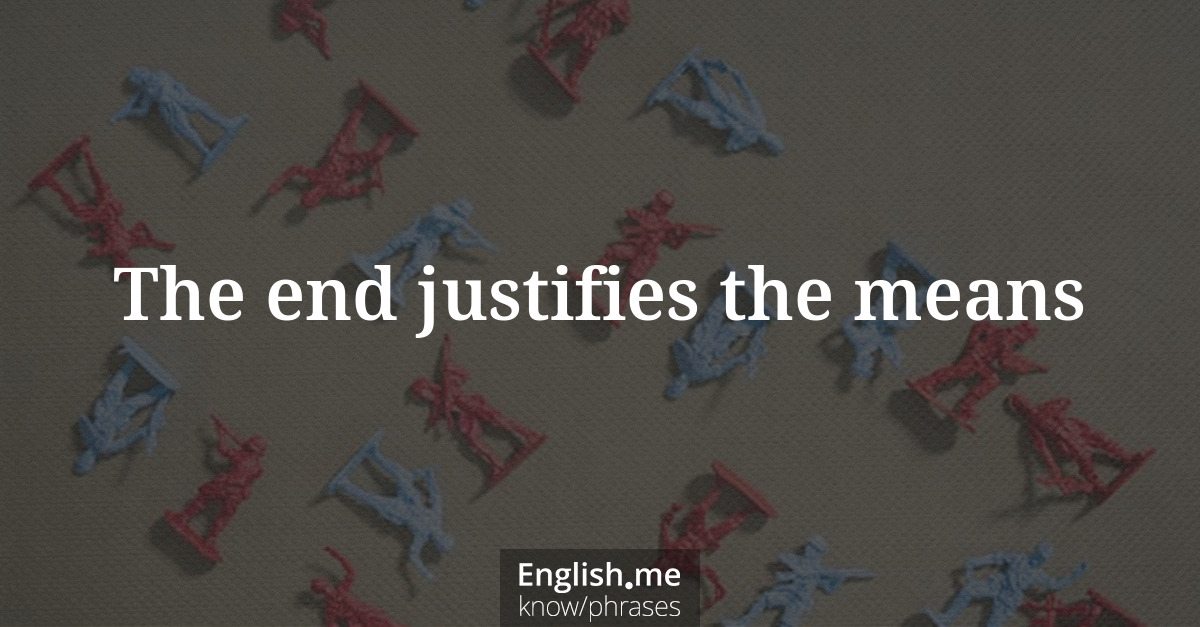Explaining "The end justifies the means"
Reviewed and edited by  Lloyd Cooper 04/10/2024, 00:09
Lloyd Cooper 04/10/2024, 00:09
English.me team member
 What does it mean?
What does it mean?

The phrase "The end justifies the means" means that if the outcome of an action is beneficial or desirable, then any method, including potentially unethical or immoral actions, used to achieve it can be considered acceptable.
 Tone
Tone
This phrase often has a controversial or morally ambiguous tone, as it suggests that achieving a positive result can excuse the methods used, regardless of their ethical implications. Origin
Origin
The idea is often associated with Niccolò Machiavelli, particularly through interpretations of his work "The Prince" from the 16th century, though he never explicitly used this exact wording.
 Examples of usage
Examples of usage
- He believed that the end justifies the means, so he didn't mind bending the rules to reach his goals.
- In politics, many argue that the end justifies the means, but this can lead to a slippery slope of unethical decisions.
- She sacrificed her personal life for her career, thinking that the end justifies the means.

 English
English español
español française
française italiano
italiano deutsche
deutsche 日本語
日本語 polski
polski česky
česky svenska
svenska Türkçe
Türkçe Nederlands
Nederlands